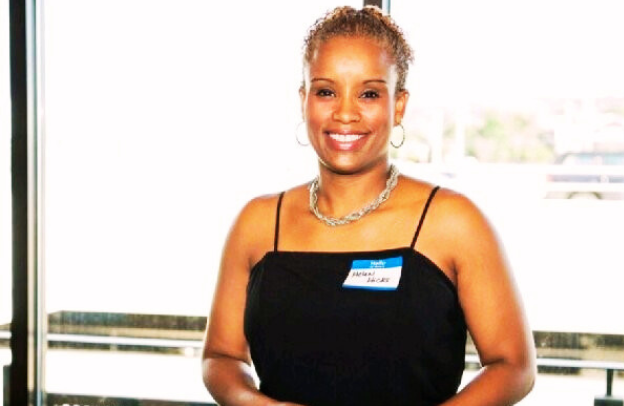Master Parenting with SMART Goals: Expert Tips from Parenting Coach Helen Hicks

Parenting often feels like an endless series of battles. The constant power struggles, the overwhelming advice, and the nagging feeling that you’re not getting it right can be exhausting. Many parents accept this as the norm, believing that raising children is just supposed to be hard. But what if there’s a simpler, more joyful path? What if the core principle you’ve been taught about parenting is fundamentally flawed?
Learn How to Leverage Your Story through our Story To Asset Framework.
On a recent episode of The Obehi Podcast, I sat down with Helen Hicks, a mental health professional with nearly three decades of experience, a mother of five, and the author of “The Parenting Treatment Plan.”
See the full interview with Helen Hicks
She shared a powerful insight that challenges the very foundation of modern parenting and offers a practical framework for building healthier, more connected family relationships.
This is about shifting your perspective from roots to relevance, understanding that how we were raised influences us, but we have the power to choose a better way for the next generation.
The Great Parenting Myth: Why Control Is the Problem, Not the Solution
The biggest challenge facing parents today, according to Helen, is a deeply ingrained belief that their primary job is to control their child. This idea, she explains, is a recipe for dysfunction.
“Parents have been told and programmed to believe that their job as the parent is to control their child,” Helen states. “And parents trying to exert that level of control often becomes the battleground of problems between them and their child.”
You might also like What Is The Role Of Clinical Psychology In Storytelling – Nathan Leli
This mindset begins the moment a child is born. From doctors to teachers, society places immense pressure on parents to manage every aspect of their child’s life.
“If something is going wrong with your child,” Helen notes, “then people are telling you that you did something wrong… parents receive this message that my job is to control, and if I’m not controlling what’s happening with my child, then I’m failing.”
The result is a constant power struggle. The parent tries to enforce control, and the child, naturally seeking autonomy, pushes back. This dynamic creates friction, resentment, and drains the joy from the parent-child relationship.
The truth? Your job is not to control your child. It is to protect, provide, and guide them. By letting go of the need for control, you extinguish the power struggle and open the door to genuine connection.
The Power of Behavioral Patterns: From Psychology to Parenting
Helen’s journey to this realization is a powerful example of how you can own your story and turn personal challenges into a source of strength. Her fascination with psychology began in a college class where, for the first time, she found a name for the dysfunction she experienced in her relationship with her mother.
“Psychology to me became like this huge window that now made sense of the world I had been living up until that point,” she recalls. “It really kind of felt like a relief… it’s not me.”
This drive to understand human behavior led her to specialize in behavioral psychology. She became an expert at identifying the deep-seated patterns that drive our actions. “Human behavior tends to follow certain patterns,” she explains. “And if you get familiar enough with those patterns, then you get insight into what are most likely the attached thought patterns and belief patterns that are underlying it.”
This same principle applies directly to parenting. When you stop trying to control every outcome and start observing the patterns in your child’s behavior (and your own), you gain the clarity needed to guide them effectively. You move from being a commander to being a coach, a collaborator in their growth.
The Lesson: Shift from Control to Choice
So, if control is the problem, what is the solution? According to Helen, it’s simple yet profound: provide choice.
“You come back to… kids need to learn how to make good choices,” she advises. “You’re providing choice rather than control. Then things ease up. Children feel more comfortable, they feel like you have a sense of belief in them and their abilities, and they tend to rise up to that.”
See also Home Through Heritage: 8 Days of Culture, Community & Connection in Tanzania
This is the central lesson. Instead of issuing commands that invite defiance, you offer options that empower your child to think for themselves and take ownership of their actions.
This shift doesn’t mean a lack of boundaries; it means you are intentionally teaching the critical life skill of decision-making within a safe and supportive structure. This approach is fundamental to building a lasting life and legacy based on trust and mutual respect.
Your Action Plan: Applying SMART Goals to Your Parenting
Transforming your mindset from control to choice is a journey, not an overnight fix. The best way to start is by setting clear, intentional goals. Helen’s work revolves around using the SMART goals framework to make parenting easier and more effective.
Here’s how you can apply it this week:
- S – Specific: Don’t just aim to “be a better parent.” Get specific. For example, “I will spend 15 minutes of one-on-one, screen-free time with each of my children daily.”
- M – Measurable: How will you know you’ve succeeded? “I will track this on a calendar, aiming for at least five days this week.”
- A – Achievable: Is your goal realistic for your current situation? If 15 minutes is too much, start with five. The key is to build momentum with small, achievable wins.
- R – Relevant: Why does this goal matter? It should align with your core family value of fostering strong connections.
- T – Time-bound: Set a timeframe. “I will commit to this goal for the next 30 days and then evaluate how it’s working.”
By replacing the exhausting pursuit of control with the empowering practice of providing choice, you can transform your family dynamic. You can build the joyful, connected, and healthy parent-child relationship you’ve always wanted.
To dive deeper into these strategies, listen to the full conversation with Helen Hicks on The Obehi Podcast. And for more insights on using your story to build your business and legacy, explore over 2,000 articles at AClasses Academy, where we help you move from roots to relevance.





